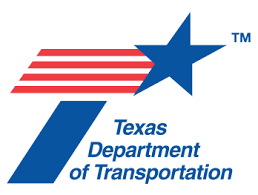 The Amarillo Court of Appeals has reversed a trial court order denying TxDOT’s plea to the jurisdiction in an inverse condemnation case brought by roadside convenience store.
The Amarillo Court of Appeals has reversed a trial court order denying TxDOT’s plea to the jurisdiction in an inverse condemnation case brought by roadside convenience store.
Texas Department of Transportation v. FamFive Holdings, LLC (No. 07-25-00113-CV; September 16, 2025) arose from a convenience store’s inverse condemnation claim against TxDOT. In 2021 TxDOT began building an overpass at the U.S. 87 and FM 41 intersection. During the construction Plaintiff’s customers couldn’t access the store across U.S. 87, increasing the time and distance necessary for the store’s patrons to reach the store. The construction was completed in 2024. Plaintiff filed suit for inverse condemnation, alleging a substantial loss of revenue during the three-year construction period. TxDOT filed a plea to the jurisdiction arguing that Plaintiff couldn’t establish a waiver of sovereign immunity because the project didn’t limit access to the store (it just increased the time and distance). The trial court denied the plea. TxDOT sought interlocutory relief.
In an opinion by Justice Parker, the court of appeals reversed and dismissed Plaintiff’s claim. “To prevail on an inverse condemnation claim,” the court began, “a property owner must establish that (1) a governmental unit intentionally performed an act (2) that resulted in the taking, damaging, or destruction of the owner’s property (3) for public use” (citations omitted). To prove damages, the property owner must show “access rights must have been materially and substantially impaired,” meaning “(1) a total but temporary restriction of access, (2) a partial but permanent restriction of access, or (3) a temporary limited restriction of access caused by illegal or negligent activity” (citations omitted). As long as a “property owner retains reasonable access to a remaining adjacent road,” however, “loss in the form of diminished property value due to an adjacent road closure is not a compensable taking.” Additionally, the court observed, “[d]imunition in the value of property due to diversion of traffic or circuity of travel does not amount to a material and substantial impairment of access” (citations omitted). In short, “[b]usinesses along highways assume the risk that new roads may be built that will largely divert the traveling public from their business. Thus, a property owner cannot recover damages when traffic is merely required to travel a more circuitous route to reach the property in question” (citation omitted).
The court determined that Plaintiff failed to plead or present evidence that the construction project limited direct access to the store. Instead, Plaintiff’s allegations and evidence showed that the project caused “a rather substantial diversion of traffic or circuity of travel for customers to reach” the store. But, the court concluded, “damages caused by diversion of traffic or circuity of travel are not compensable in a claim for inverse condemnation against a state agency” (citations omitted). The trial court thus erred as a matter of law in denying TxDOT’s plea to the jurisdiction. Plaintiff tried to get the court to speculate about the “point at which a more circuitous route could amount to a material and substantial impairment of access,” but the court wouldn’t take the bait. In fact, it stated, the case law clearly indicates that highway construction can nearly completely divert traffic away from a business and still provide reasonable access (citations omitted). The risk of that happening must be borne by roadside businesses.












